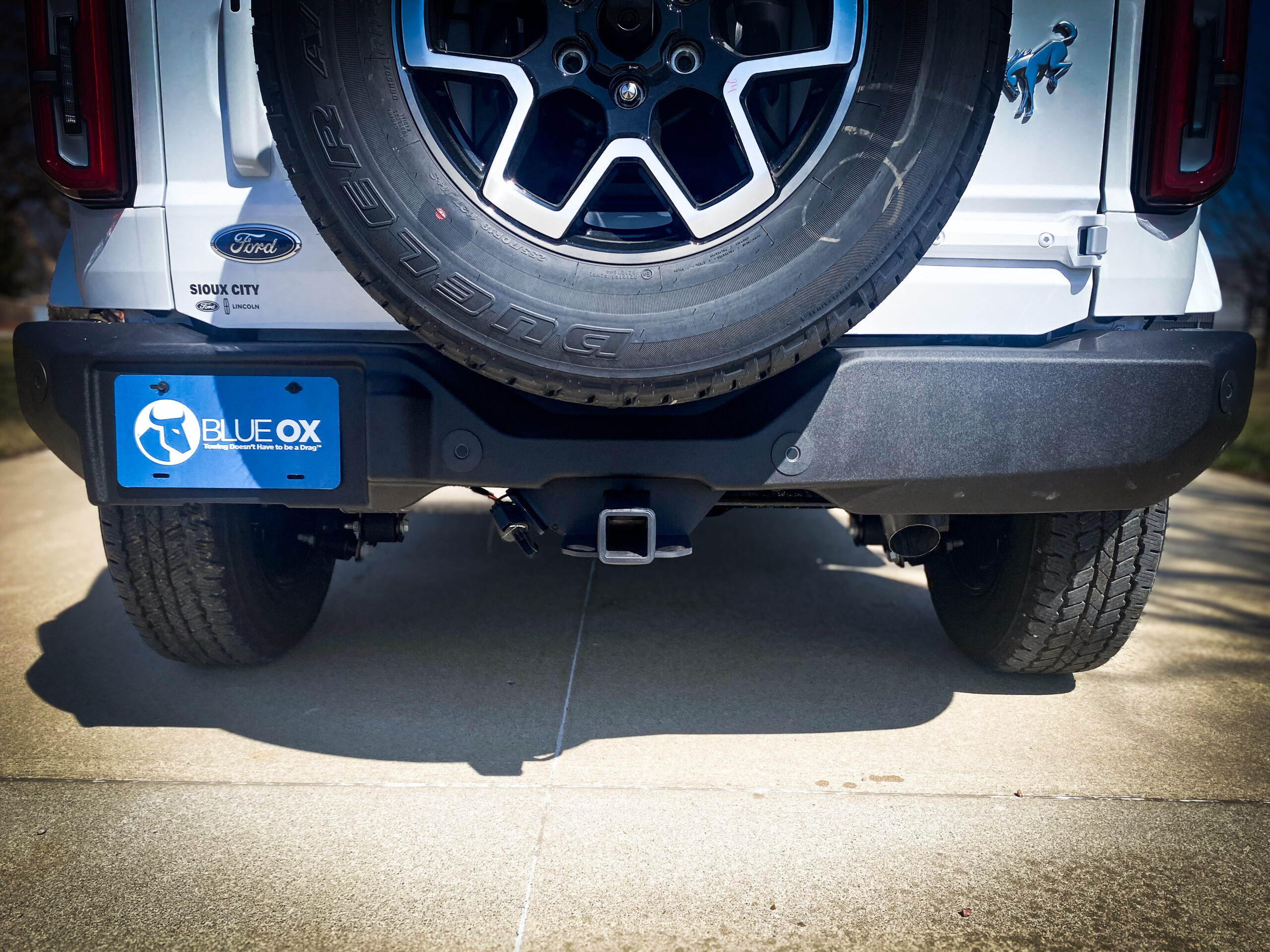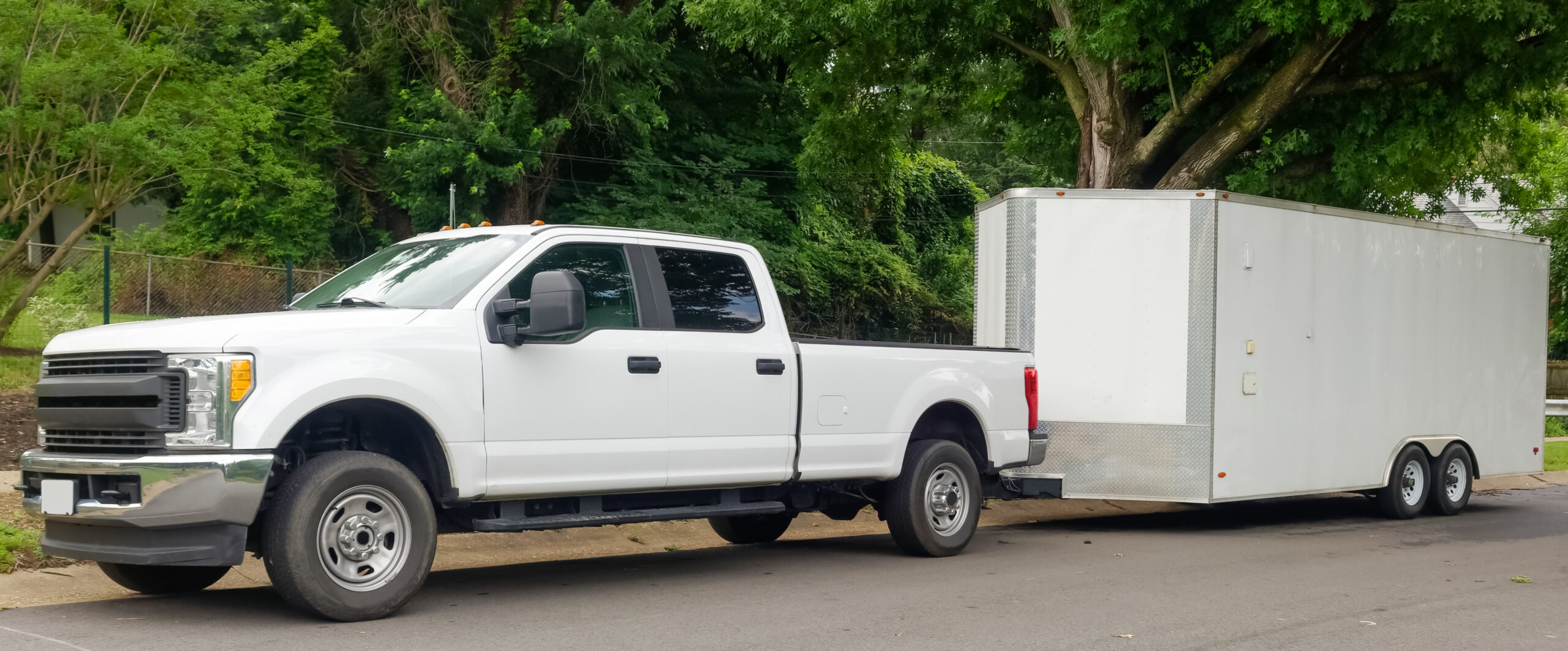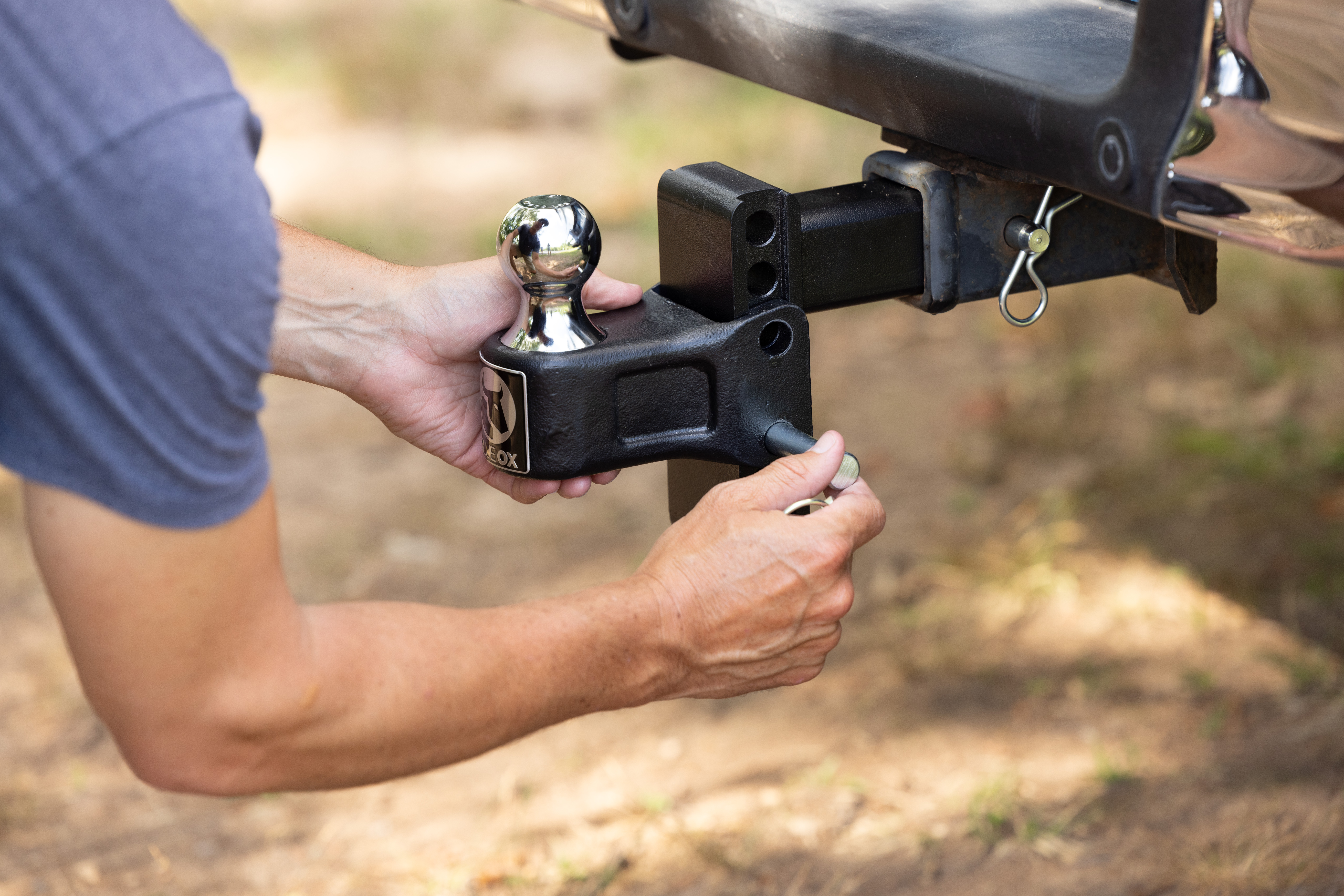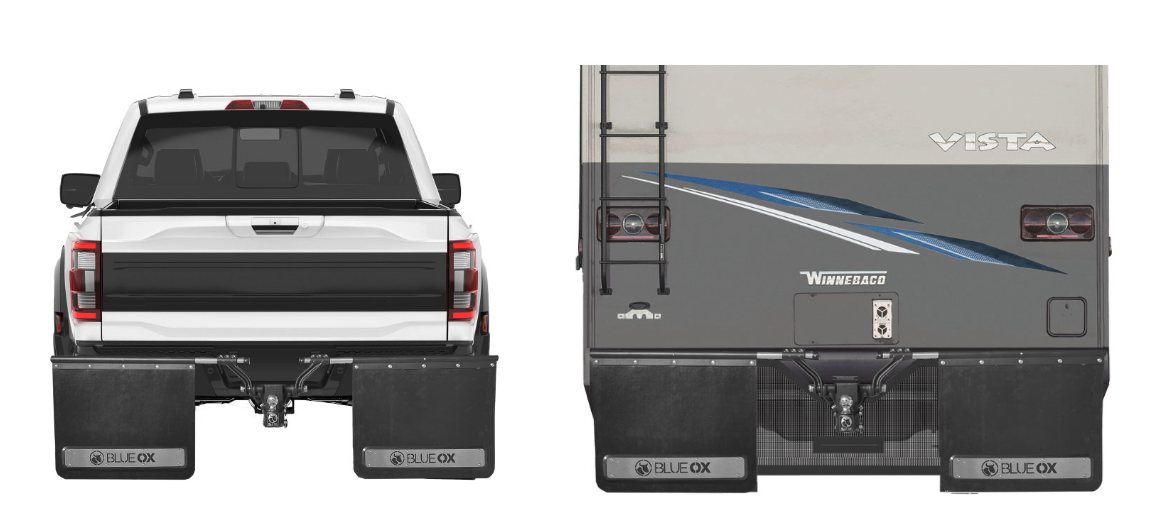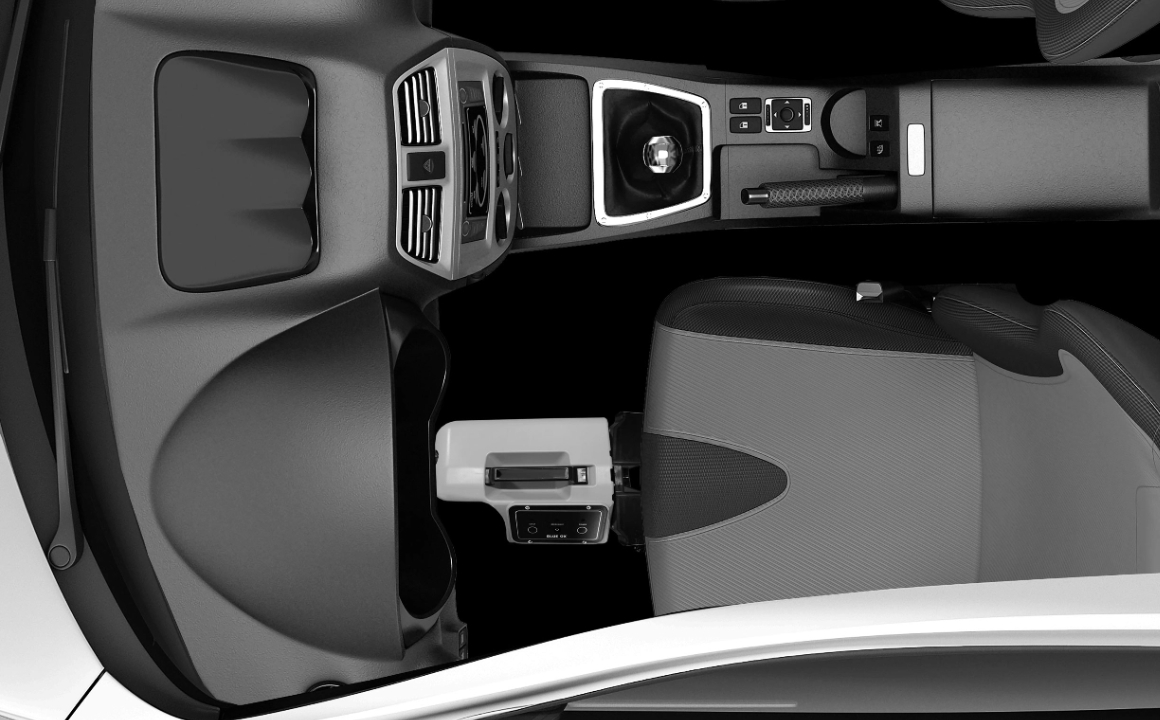When it comes to towing, the receiver hitch is an crucial component. Whether you’re an RV enthusiast, a weekend warrior with a boat trailer, or someone who regularly hauls utility trailers, understanding receiver hitches is necessary to tow safely. Learn about what a receiver hitch is, the benefits of having one, and how to add one to your vehicle.
What is a Receiver Hitch?
A receiver hitch is a sturdy metal device mounted to the frame of your vehicle, providing a solid attachment point for towing various types of trailers. The most common type features a square receiver tube, which accepts a variety of hitch-mounted accessories like bike racks, cargo carriers, and, of course, ball mounts for towing.
Types of Receiver Hitches:
- Class I: Suitable for light-duty towing up to 2,000 lbs. Ideal for small trailers and bike racks.
- Class II: Medium-duty, handling up to 3,500 lbs. Perfect for small boats or single-axle utility trailers.
- Class III: Versatile and commonly used, supporting up to 8,000 lbs. Great for larger boats, campers, and utility trailers.
- Class IV: Heavy-duty, with a towing capacity up to 8,000-10,000 lbs. Ideal for larger campers and equipment trailers.
- Class V: Super heavy-duty, capable of towing up to 15,000-18,000 lbs. Used for the largest trailers and commercial applications.
- Specialty Hitches: These include gooseneck and 5th wheel hitches, which are used for very heavy loads and specific types of trailers.
When Do You Need a Receiver Hitch?
A receiver hitch is essential for anyone who frequently tows trailers, whether for recreational vehicles like boats and campers or for practical uses like utility trailers and equipment. It’s also crucial for mounting hitch accessories such as bike racks, cargo carriers, and tow bars. Receiver hitches ensure your load is securely attached and evenly distributed, providing the necessary strength and stability for safe towing. Even if you don’t tow often, a receiver hitch can expand your vehicle’s capabilities for unexpected hauling tasks.
Can You Add a Receiver Hitch to Your Vehicle?
Many vehicles, especially trucks and SUVs designed for towing, come equipped with a receiver hitch installed from the factory. These factory-installed hitches are usually well-integrated into the vehicle’s design and often matched to the vehicle’s towing capacity. However, there are situations where you might still need to buy a new receiver hitch. Upgrading to a new receiver hitch can provide enhanced safety, better compatibility with towing accessories, and peace of mind on the road.
Some vehicles don’t come with a receiver hitch. Before adding a receiver hitch, it’s crucial to determine if your vehicle can accommodate one. Ensuring compatibility and understanding your vehicle’s capabilities will prevent potential issues and enhance your towing safety. Here’s how to determine whether a receiver hitch can be installed on your vehicle:
1. Vehicle Compatibility
The first step is to check whether your specific vehicle model is compatible with a receiver hitch. This involves:
- Manufacturer Specifications: Consult your vehicle’s manual or the manufacturer’s website to see if a receiver hitch is recommended or permissible. Some vehicles, particularly smaller cars, might not support heavier classes of hitches.
- Vehicle Type: Receiver hitches are typically installed on trucks, SUVs, and some larger sedans. Smaller cars may only be able to handle Class I or Class II hitches, which are designed for light towing.
- Aftermarket Resources: Many aftermarket hitch manufacturers, including Blue Ox, provide compatibility guides and tools on their websites. These resources allow you to enter your vehicle’s make, model, and year to find suitable hitches.
2. Inspect the Frame
A crucial factor in installing a receiver hitch is the condition and design of your vehicle’s frame. Here’s what to look for:
- Frame Design: Ensure your vehicle has a solid, factory-installed frame to which a hitch can be securely attached. Some vehicles might have frames that are not suitable for mounting a hitch.
- Frame Condition: Inspect the frame for any signs of damage or rust. A compromised frame might not provide the necessary support for towing. If you notice any issues, consult a professional mechanic before proceeding.
- Mounting Points: Check for existing mounting points or pre-drilled holes that are often included in vehicles designed for towing. These can make the installation process easier and ensure a more secure fit.
3. Towing Capacity
Understanding your vehicle’s towing capacity is essential to ensure you do not exceed its limits. Exceeding your vehicle’s towing capacity can lead to dangerous situations, including brake failure, engine overheating, and structural damage. Follow these steps:
- Check Owner’s Manual: Refer to your vehicle’s owner’s manual to find the specified towing capacity. This information is usually found in the section on towing or specifications.
- Determine Weight Ratings: Pay attention to the Gross Vehicle Weight Rating (GVWR), Gross Combined Weight Rating (GCWR), and the maximum tongue weight. These ratings indicate the maximum weight your vehicle can handle, including passengers, cargo, and the trailer.
- Calculate Total Load: Add up the weight of your trailer and the load you plan to carry. Ensure this total does not exceed the towing capacity specified for your vehicle.
- Use A Safety Margin: It’s wise to stay well below the maximum towing capacity to account for additional weight that might be added unexpectedly and to ensure better control and safety.
How to Choose the Right Receiver Hitch
Choosing the right receiver hitch depends on your specific towing needs:
- Determine the Class: Match the hitch class to your towing requirements. For instance, a Class III hitch is suitable for most standard towing needs.
- Consider the Towing Type: Think about what you’ll be towing (e.g., an RV, boat, or utility trailer).
- Weight Ratings: Pay attention to weight ratings and tongue weight capacity to ensure safety.
- Versatility: Blue Ox Adjustable Ball Mounts offer the flexibility to tow various trailers with different coupler heights.
Blue Ox Receiver Hitches
Blue Ox receiver hitches are a top choice for those seeking reliability and strength. Designed with precision engineering and high-quality materials, Blue Ox hitches provide exceptional durability and performance. At Blue Ox, we’ve implemented a state-of-the-art TTX e-Coat system. This multi-stage immersion process ensures thorough cleaning and optimal paint adhesion. We apply a high voltage to the e-coat, bonding the paint to the parts and making them highly resistant to corrosion. This is followed by a powder coat for UV resistance and a sleek finish.
They are available in various classes to match your specific towing requirements, ensuring you can find the perfect fit for your vehicle and load. With easy installation and a focus on safety, Blue Ox hitches are an investment in peace of mind for all your towing adventures. Whether you’re towing an RV, boat, or utility trailer, Blue Ox offers the versatility and quality you need to tow with confidence.
Accessories for Your Receiver Hitch
Blue Ox offers a comprehensive range of hitch accessories designed to meet all your towing needs. Maximize your hitch’s potential with essential accessories:
- Tow Bars: Perfect for flat towing vehicles behind an RV.
- Ball Mounts: Available in different sizes and adjustable options.
- Hitch Accessories: Enhance functionality with hitch locks, pins, adjustable ball mount hitch steps, and hitch immobilizers.
- Mud Flaps: Protect your towed items and vehicle from road debris.
Upgrade Your Towing Experience Today!
Adding a receiver hitch to your vehicle can greatly enhance its utility and towing capabilities. Explore Blue Ox’s premium range of receiver hitches and accessories to ensure a safe and reliable towing experience. Visit our website to browse our products or contact us to find a dealer near you. Your next adventure awaits with Blue Ox!

